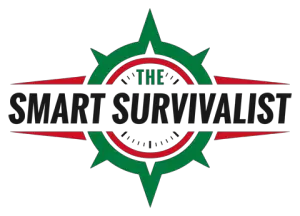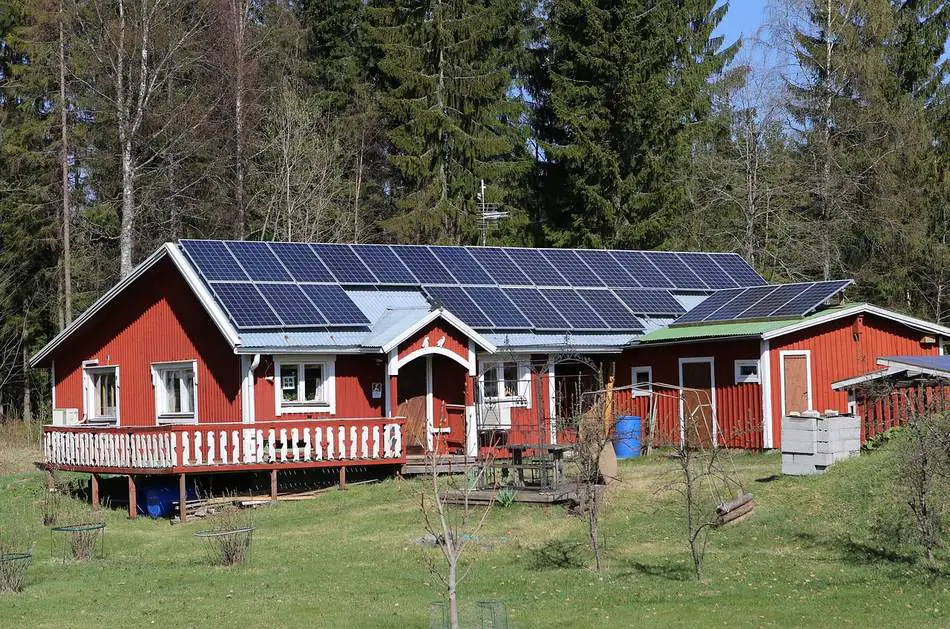You took the first step, you decided to live off the grid. You want to experience a true sense of liberty and independence. The first question that probably popped in your mind is where in the United States you should start your off-grid life.
In theory, you can live off the grid almost anywhere, but some areas in the USA are more preferable to others. There are several factors to take into consideration, such as:
- Weather and climate
- Land prices
- Local building codes
- Property taxes
- Legality
So to answer this complicated question, I’ve done an extensive research and made a list of the best states and places in the USA that are suited for your off-grid dreams. I will also mention a few good off-grid communities and talk more about the factors that should help your final decision. There is also a highly recommended reading that I link to further down the article.
The following video summarizes this article:
15 Best States to Live off the Grid in the USA
Arizona
Specifically, the northern part of Arizona. The land cost is low, and the climate is comfortable. The biggest issue is water, it’s somewhat scarce. You will have to transport water to your homestead, or even better – purchase a lot with a water source. If there is water underground, then build a well.
Northern Arizona’s long growing season and abundance of sun will definitely boost your crops. The extended sunny periods will also provide you with a free solar energy all year long.
California
The northern part of California is the one I highly recommend. Low land prices and low taxes, abundant water, more lenient laws plus temperate weather equals an awesome choice to live off the grid. The southern half is not bad either, but the land prices are steep and the population density is too high.
An example of a great Californian off-the-grid community is Emerald Earth in Mendocino County. It’s actually one big house with about 12 people living in it. They use a composting outhouse, so they are free from the state’s sewage system.
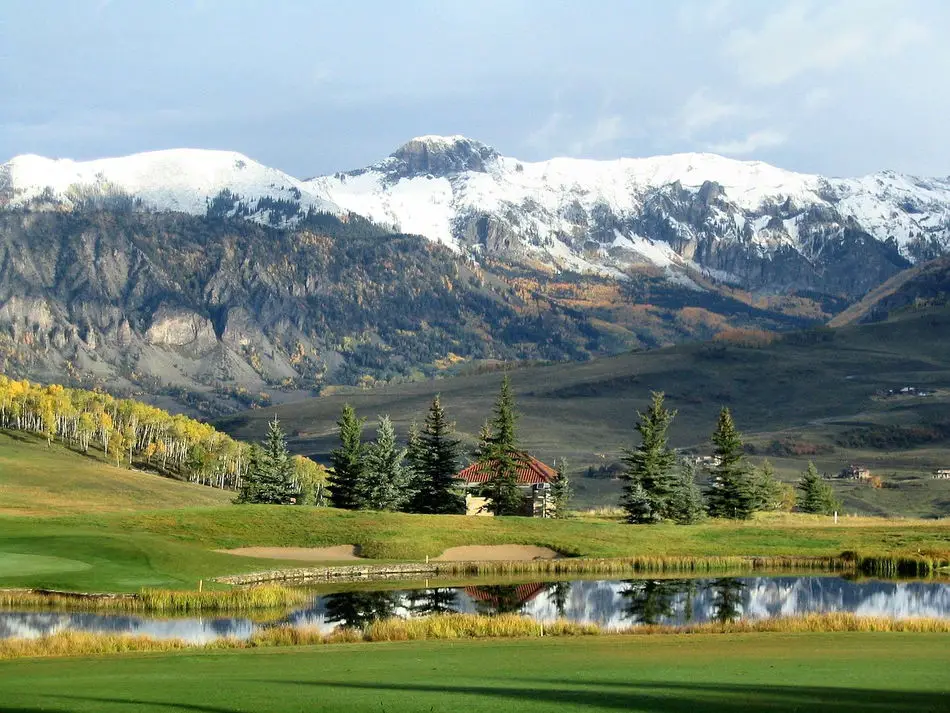
Colorado
Colorado is steadily becoming a more welcoming state for those who wish to live off the grid. The codes are getting more flexible, and sustainable buildings are being constructed in several counties. You would have to find a good solution for the water supply, since a large part of Colorado is a desert land. Try looking for a lot away from the cities, and you will find that the land costs less there.
Florida
Florida is an outstanding off-the-grid choice! As long as you have a good water source and septic system, you will be left alone. Unlike the false rumors on the Internet, living off the gird in Florida is completely legal.
In Florida, you are free to install whatever alternative energy source and home addition you desire, be it a well, a garden, wind turbines, solar panels system, and so forth. You can raise your own livestock – pigs, cows, hens and roosters, you name it. Preparing to live off the grid is so much easier in Florida.
The rural land is reasonably priced, and there is a lot of water and timber that can be found nearby. You won’t find rock though, since most of Florida is soil or sand. However, if you settle down in the south of the state, there are fossilized coral beds that are extraordinarily tough and can be used instead of your regular rock.
Hawaii
The cost of moving to Hawaii could be very high, but it’s well worth it. If you’re seeking complete independence, away from the main land, then this is the right kind of haven for you. You literally cannot be on the grid, because the grid does not extend further than the city limits. Most of the island is simply off the grid.
Add to this the fact that you have a nutrient-rich soil, generous sun and rains, sustainable energy – and you can build here your perfect homestead! You can grow almost anything here, even coffee beans (which cannot be grown in any other state).
Maine
Maine has its own pluses and minuses. On the plus side, you can always find a remote and inexpensive property here. Which is an excellent option, since living off the grid is not living for free. Timber, rock and water are abundant and within a reach. The building codes are lenient, and an off-gridder is true welcomed.
On the other hand, the seasonal weather is not for everyone. The winter is cold and wet. However, the time from spring to fall is more tolerable and can be quite pleasant.
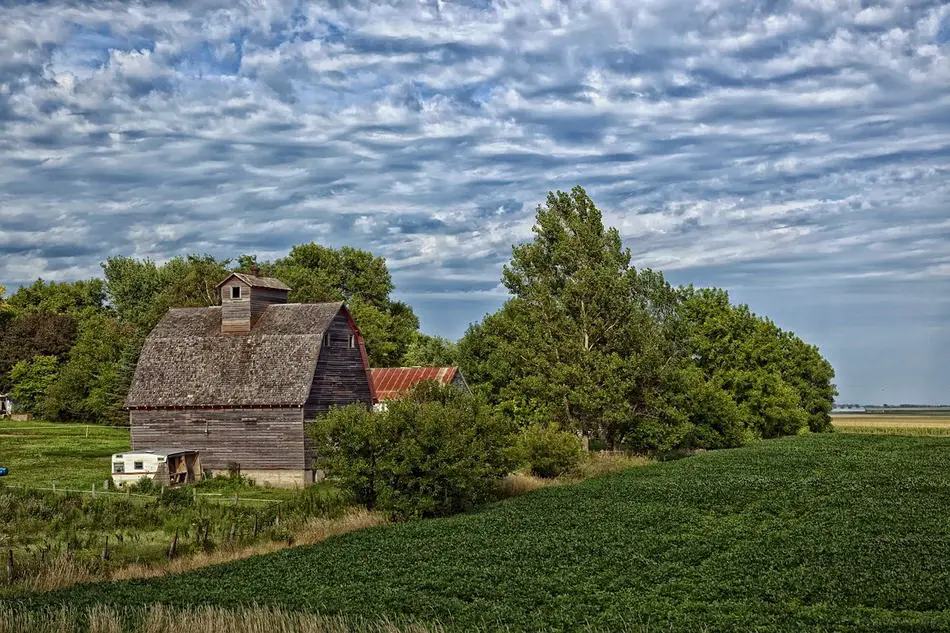
Missouri
The legality of living off the grid in the state of Missouri is unquestionable, and this life choice is even encouraged by the authorities! The state does not demand to connect to the septic systems or to have a well, and you can collect rainwater as you wish. Your choices are not heavily regulated by the local government, and the laws are in favor of those who wish to live a life independent of the rest of society.
The land in Missouri is very suitable for establishing a farm or a ranch, and nearby natural resources are abundant. When it comes to growing the crops, the weather is very helpful. While the summer tends to be too humid and sweltering for humans, it is actually useful for your livestock and farming intentions. Winter time, on the other hand, is mild with little snow, and some plants can still grow during the winter time. Add some rains around the year, and you get a climate that perfectly suits any off-the-grid desire.
There is an off-grid community in northeast Missouri known as Dancing Rabbit Ecovillage. 45 off-gridders in this community enjoy a simple style of life, while working on making a noticeable cultural change. The houses are built from recycled materials and run on renewable energy, making the ecovillage green and sustainable.
Montana
Montana can be a great choice if you intend to establish a ranch. But if you’re buying a land there, you’d be better off in the mountains, which can shield you from the ruthless prairie winds. I would advise getting a mountain land in North Dakota and Wyoming as well. The Montana winter is cold, but it’s more bearable in the mountains. You can also harness the power of the constant winds, and with the help of wind turbines turn it into a reliable power source.
Despite the weather, Montana is a place to be if you wish to live off the grid. The prices for the land are affordable, you can even find a property next to a water source for a good price. And again, if you go for the mountains and not the prairies, you can find a lot of rock and timber nearby.
The prairies and the grasslands are a great choice for livestock. Not so much for growing the plants, though, especially because of the shorter growing season. So consider raising a greenhouse to help your plants.
North Carolina
You can find a lot of superb and inexpensive land in North Carolina, just don’t look near the coast line. NC has an ever-growing population of off-gridders, especially around the Black Mountain and the city of Saluda. If you wish to extend your preparedness and survival knowledge, the local Prepper Camp has everything you need.
A good example of what you can find in NC is Earthaven, a community based in the mountains near Asheville, North Carolina. It is a home to dozens of people, and the plans to extend this 320 acre community to 150 dwellers. The community’s energy is supplied by hydropower and the sun.
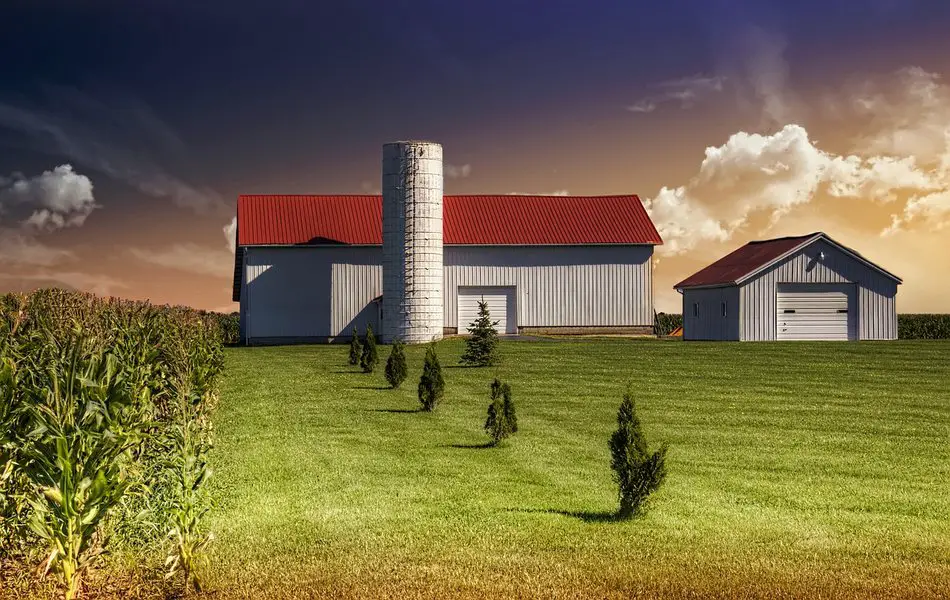
Ohio
Ohio is often dismissed by those looking to settle off the grid, but it’s actually a good option and has its well-earned place on this list. Let’s have a separate list for Ohio’s advantages (though mostly its southern half):
- Many natural resources
- Low land cost
- Affordable living costs
- Crime rates that are much lower than in most other states
- Property taxes are low as well
- No zoning regulations or permit office in many counties (the septic tank regulations, however, are managed by the health department)
- Long growing seasons for the crops, extending from May all the way to October
As you can see, Ohio is a real possibility, too.
Oregon
While some of Oregon is covered by the desert, you can find suitable lands in the Cascade Range Mountains and the entire western part of the state. Lots of natural resources, you can fish and hunt, as well as find quality timber on almost every lot.
The desert is not that bad either, it’s high like in northern California, so the weather is easier to bear. And whatever part of Oregon you decide on, you can always find a land for an affordable price.
Three Rivers Recreation Area, situated in Central Oregon, is an impressive large off-the-grid community, housing over 600 residents. Three Rivers covers 4000 acres, and it’s exclusively powered by solar panels. Thanks to the electricity produced from the sun, the local residents enjoy all the modern luxuries, such as satellite TV and fast Internet. There are also numerous ways to enjoy the outdoors, as you can go fishing, hunting, biking or even just relaxing under the clear skies. Whatever your budget is, you can always find there a property that suits you.
Another Oregon community is Breitenbush. Its 60-plus residents chose to go off the grid, and instead of relying on power lines, they use geothermal wells as a heat source. The community is quite open to visitors, its Hot Springs Retreat and Conference Center brings in tourists throughout the year. The visitors enjoy the stay in a unique community and the beautiful scenery.
Tennessee
Tennessee is the right place if you wish to save money (or even make money). It has it all. The taxes, the cost of living (in rural areas) and the property costs are the lowest in the United States. Natural resources, fishing and hunting, unsupervised rainwater collecting, 260 yearly days of growing season – the climate and the environment are on your side. All these attributes together make Tennessee one of the best off the grid possibilities.
Texas
Texas boasts countless acres of land that you can purchase. The land prices are really low in small counties and remote areas. Fishing and hunting are plentiful. However, water is a major problem, and the temperatures can get uncomfortably hot. After all, a significant part of Texas is a desert. This should not deter you from getting a nice deal that’s easy on your pocket.
Here is a story of a person who bought a land in Texas for next to nothing and established an off-grid homestead:
Vermont
Vermont is another recommended place for the off-grid life. First of all, the land prices are reasonable, and there is definitely a lot of land available. The natural resources, such as timber, rock and water, are also within a reach. Most counties have zoning laws that favor the off-grid residents, just choose a location far from the big towns.
Washington
Washington State is an excellent choice for those of us who dream of going off the grid in a green, luxuriant forest. The weather is moderate (45F in winter and 80F in summer), which makes Washington even more attractive.
While it does sound like a paradise, keep in mind that some local laws are extremely strict. They dictate just how you’re allowed to build your house. But on the other hand, the laws also allow collecting rainwater and encourage raising various kinds of livestock. A lot of off-the-grid communities have already made Washington their permanent home. Furthermore, you can even purchase a lot that already has a ready-to-use off-the-grid property.
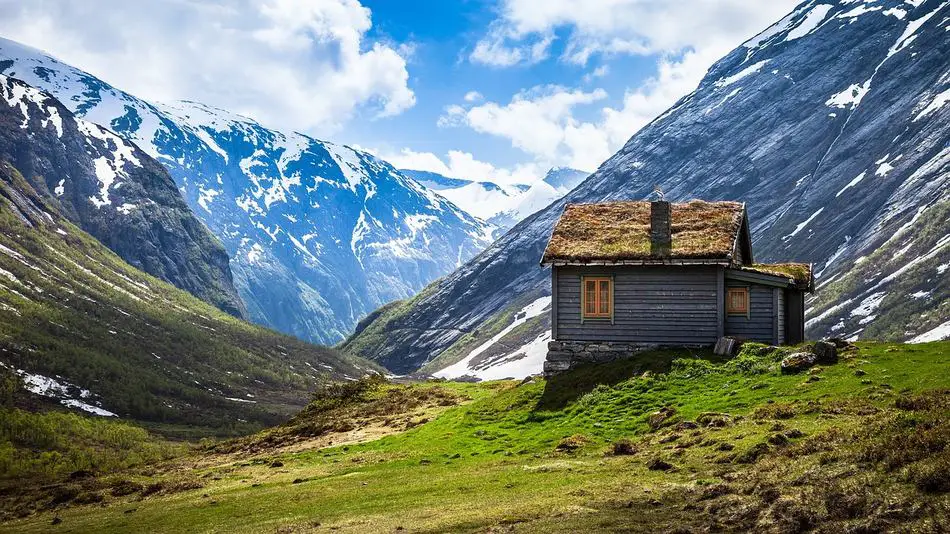
7 Factors to Consider Before Deciding Where to Live off the Grid in the USA
- Water source. Going off the grid means disconnecting from the water lines. It would be better for you to buy a land near a steady and clean water source. This could be a lake, a river, a spring, or even a place with a functioning well. You cannot survive without water.
- Weather/climate. Some people love the changing seasons, some would prefer a nice weather 365 days a year. Figure out what climate suits you the most, what challenges you might be facing in the cold winter, in the hot summer, when it rains and when a tornado passes by. You can use a website like usa.com for a research, just look under “Historical Weather” for the area that interests you. And if the area is frequented by natural disasters (floods, earthquakes, drought, hurricanes, wildfires, and so on), then perhaps it’s not worth the trouble. The number of sunny days per year can also affect whether you should go for off grid or on grid solar (click to learn the difference).
- Land cost. This is not just about finding a price that fits your budget. A price tag for the land can hint about its quality. The land that’s too cheap could mostly be a swamp or a desert. You probably should go for a land with natural resources and an agricultural quality. You could also consider buying a smaller lot and invest more money into the structure and equipment.
- Living costs. Even if you plan to produce your own food and materials, there will always be something that you need to buy from a nearby shopping center. You could be spending quite a lot on the equipment before you see your first vegetables sprout. So research the cost of living in the state of your choosing and figure out if you can afford it.
- Local community. It’s also good to settle in an area populated with reliable and like-minded neighbors. These could be your newest friends. They can help you with their knowledge and information about the area, they will barter services and goods with you. Additionally, you probably wouldn’t want a high population density nearby, should something extreme happen. Also, see what the crime rates are in this place. Low rates mean an easier protection of your land.
- Laws and regulations. Nice weather and nice people can’t improve your off-grid life should the local laws be too limiting. Before moving to a state, ensure that you can achieve everything you planned. Do the local laws allow building a house that’s not connected to the power grid? Are you penalized if your house is not linked to the sewage system? What are the building codes in this area? Do they demand that you use only certain materials when building a homestead? As you can see from these few examples, laws are not the same in every area, and they do not always fit the off-the-grid lifestyle.
- Property taxes. These can take a huge chunk of your budget, so choose a state accordingly. Taxes can also affect your decision regarding the size of the land. A large land can be zoned as agricultural, therefore you will pay less taxes, but will need to pay upfront more when you purchase the land. On the other hand, a smaller (and cheaper) lot will be marked as a residential area, which means higher property taxes. See if you can rezone a small property as an agricultural zone by establishing a mini-farm (with or without livestock), or a garden.
Recommended Reading
Before moving to live off the grid in the USA, it’s always a good thing to learn from the experience of others. There are two very helpful books on Amazon with hundreds of positive reviews from people like you, who took a first step to realize they off the grid dreams and intentions.
Going Off the Grid: The How-To-Book of Simple Living and Happiness by Gary Collins is an excellent guide to anyone who feels overworked and exhausted by the city life, and is looking for his or her own spot in the world. There are many steps that you can take by learning from this book, steps that help you reduce the clutter from your life, find an off-grid property, use the best building techniques to make an effecient homestead, and so on. If you plan to live outside the city limits, then this is the number 1 DIY guide, written by a true expert.
Country Wisdom & Know-How: Everything You Need to Know to Live Off the Land from Storey Publishing is another popular choice. It includes step-by-step instructions that teach you everything you need to know to maintain a sustainable and self-effecient life. Among its 200 extremely useful topics are: animals and lifestock; how to make any food (bread, cheese, even wine); how to craft anything (baskets, quilts, natural soaps); gardening; health and wellbeing; home repairs, and so much more. Every answer you have – this book immediately and precisely answers it!
Final Words
I hope that my effort was helpful, and this article at least somewhat pushed you in the right direction. As a final tip, I would advise to check the area of your choice physically. Go and visit it before settling, talk to some local folks, see whether the laws are not too restricting and the natural conditions suit you.
I would also like to invite you to read my posts on the best places to live off the grid in Canada, the legality of living off the grid in Canada, how to live off the grid in UK , how to live off the grid in Australia and the best places to live off the grid in the world. I’m sure it would interest some of the non-US readers. Also, if you have some doubts about moving off the grid, please read my article that answers whether or not it is illegal to live off the grid in the United States.
Finally, notice that I did not mention Alaska. Alaska is a great off-the-grid option, but it deserved its own discussion. Read my new post on living off the grid in Alaska.
And whatever your choice is, I know that it is the right one. You are changing your life for the better!
